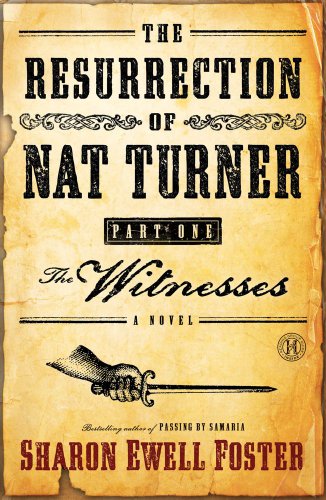The Resurrection of Nat Turner, Part One: The Witnessess
Nat Turner led a slave revolt in Virginia in 1831. This book tells his story through the eyes of others, including Harriet Beecher Stowe – who years later researches a possible novel about him – and people who knew him. It contains beautiful, lyrical writing and vivid portraits of “witnesses” to Turner’s life and death. Another volume, to be published next year, is expected to include what Part One strikingly omits – a retelling of events through Turner’s eyes.
Nat Turner fought heroically for freedom, but helpless whites, including young children, were killed in the revolt. He is presented in Foster’s book as virtually saintly, apparently devoid of inner conflicts. This contrasts with the highly nuanced portraits of other characters, slave and free. Turner is seen from a distance, and his actions in the revolt are shrouded from the reader, though it is suggested his famous confession was pure fabrication. We never watch him with his wife and child, or leading his followers into battle, or at his trial, or facing execution. We do see him preaching against slavery and suffering for it. In contradiction to what one usually reads about him, he is presented here as the son of a white owner and an enslaved Ethiopian woman, who was herself a slave owner in her native country. Her guilt and belated realization that slavery violates the tenets of Christianity provide much of the emotional texture to the novel.
Sharon Ewell Foster has written a moving story, well worth reading. Her central figure – Nat Turner – remains unknowable, however. There is an empty place right in the center of the novel. It might have been better to wait to publish the entire story at one time. Readers will certainly want to see how that empty place is filled.










